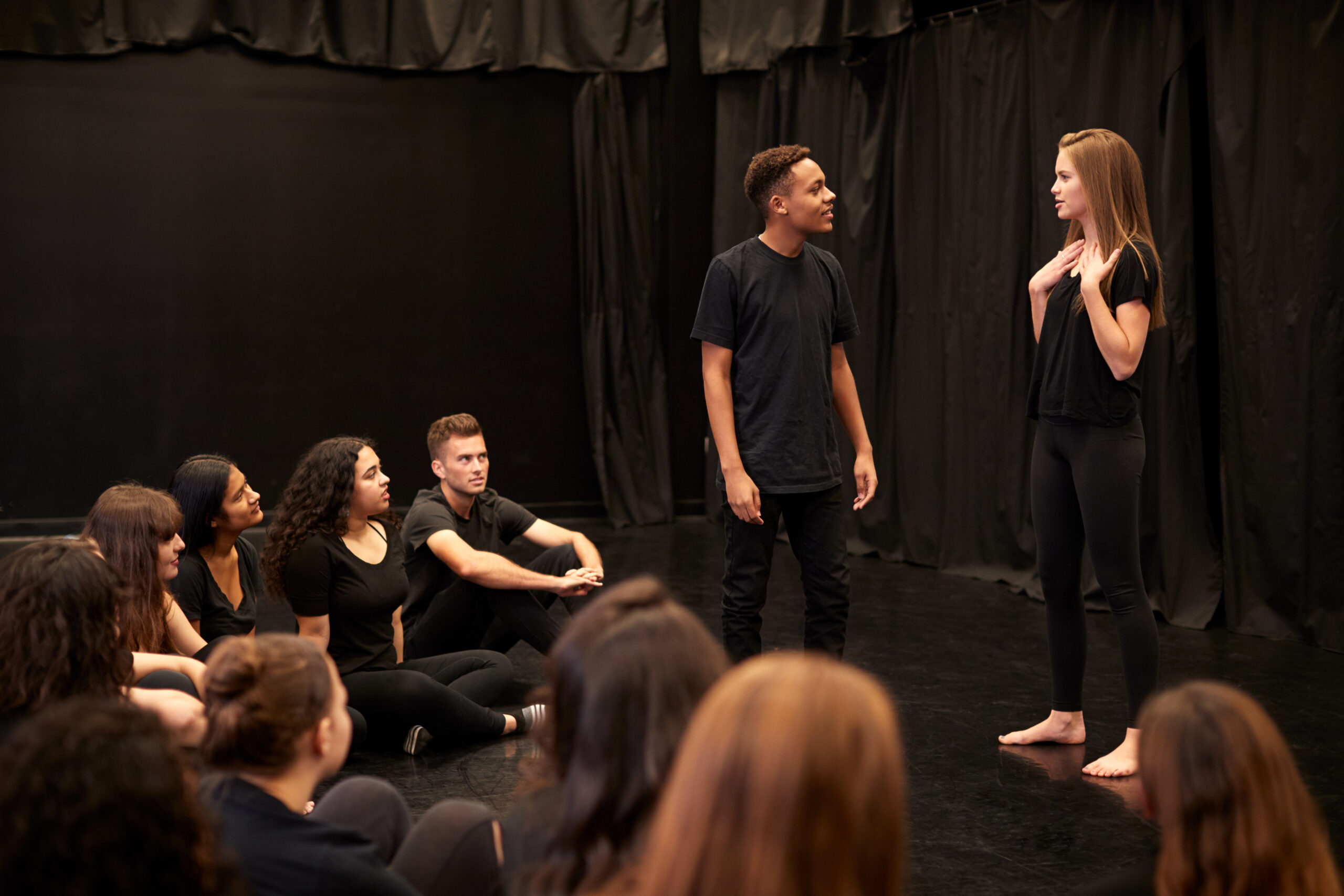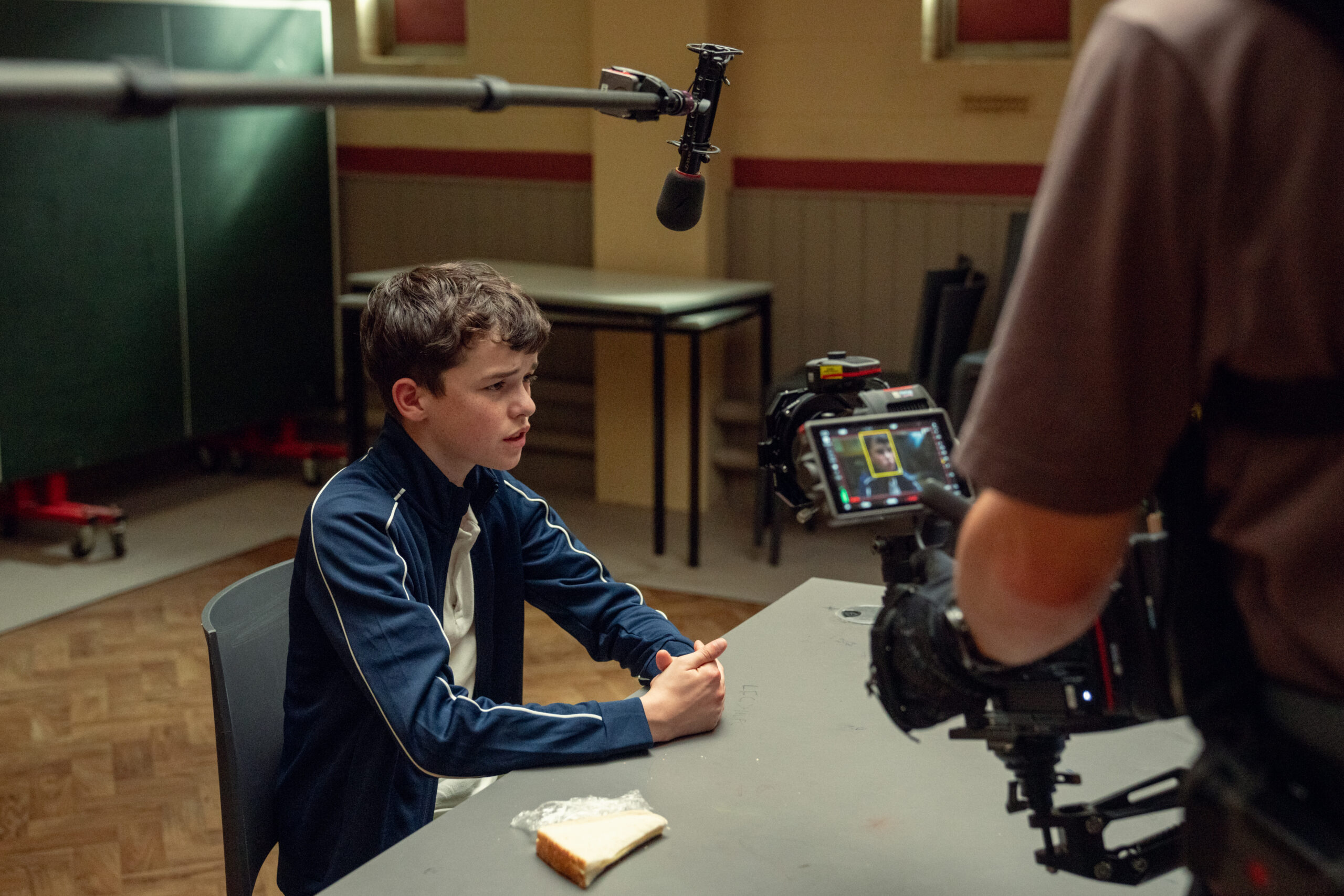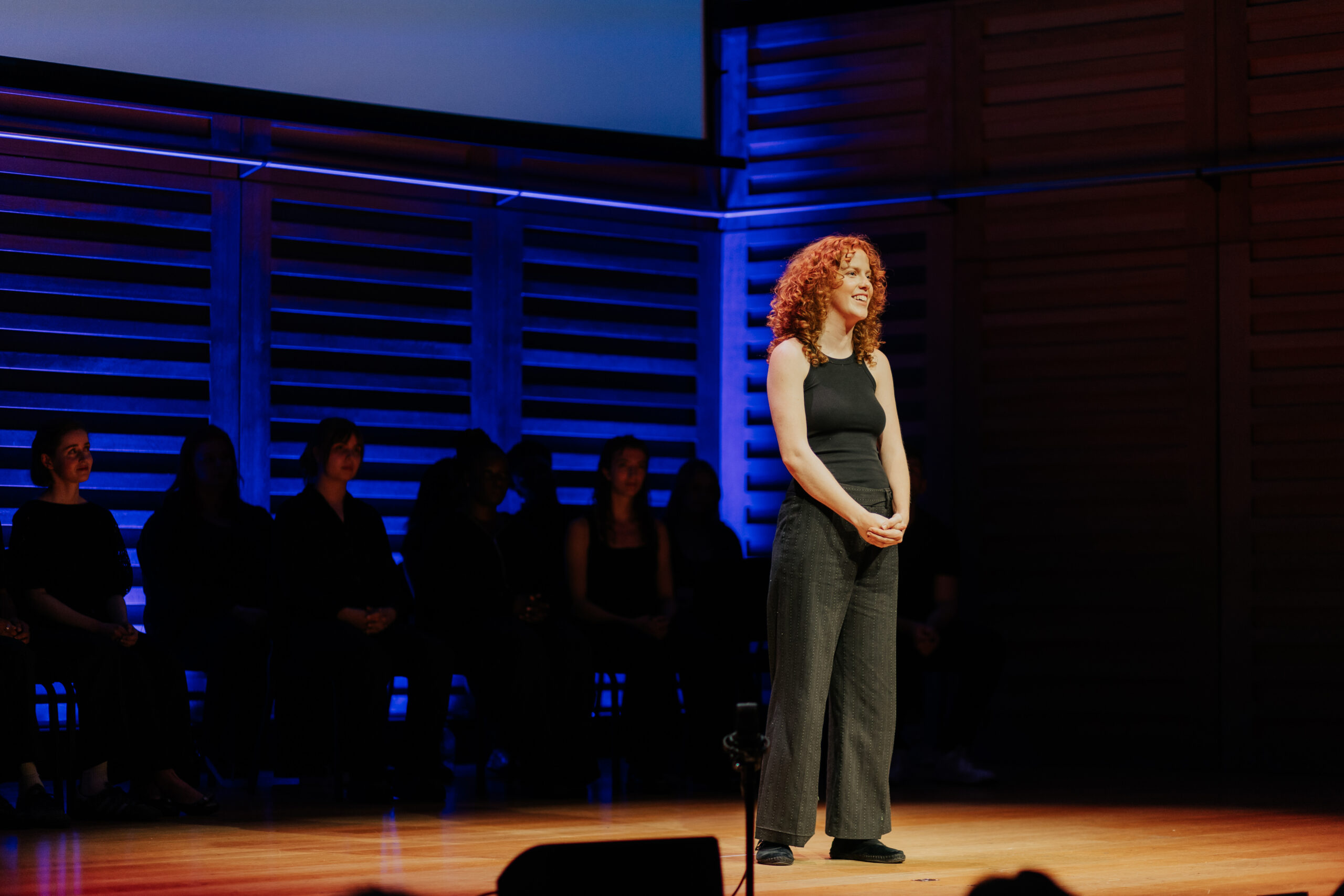Maximise your drama school experience with these 10 tips for networking, making contacts, honing your self-taping skills, agent advice and more.
If I could go back in time, I would’ve done my final year at drama school differently, and I’m sure plenty of actors across the country would agree. I thought the purpose of training was to get an agent from my showcase and begin a dazzling career on the stage and screen.
Plot twist!
Like so many graduates, I didn’t get an agent from my showcase and I wish I hadn’t put myself under so much pressure as I got one in the end. Just not in my final year. Many talented actors graduate and go on to be self-represented; it’s not a barrier to getting professional work.
Your final year at drama school combines all the skills you need to succeed in the industry, so give it your all, as the most important thing is to keep learning and developing as an actor. With that in mind, here are 10 tips to help you make the most of your final year at drama school.
1. Invite Industry Professionals to Your Best Productions
I remember feeling so much pressure surrounding the industry showcase that I almost put myself on pause. Looking back, I was in some great productions that year and in hindsight, I wish I had invited agents to those, too. So, this is a reminder that if you get a part that really showcases your talent, invite agents and casting directors to see you in action – you have nothing to lose.
Like Spotlight member Anna Swan said in her final year at East 15, “I wish I had been braver by actively contacting agents and casting directors throughout my final year, telling agents what made me unique, and [that I] was more specific about what casting types I fitted into.”
When inviting an agent to see you perform, avoid sending generic emails, as it’s important to grab an agent’s attention. Agents represent a diverse range of actors with different accents and skills, so shout about who you are and what makes you special.
2. Don’t Worry About Not Getting an Agent
It’s a myth that most actors get snapped up by agents in their final year. Laura Carmichael didn’t have an agent before she landed her life-changing role of ‘Lady Edith Crawley’ in Downton Abbey, and Hollywood actor Idris Elba landed his first agent after they sat in the audience and saw him starring in a play on opening night. And Derry Girls actor Nicola Coughlan got her first agent at age 30 – five years after graduating from the Royal Birmingham Conservatoire School of Acting.
It can be disappointing when you don’t receive a response from an agent after you sent them an invitation email or if no one turns up to see you perform, but don’t take it personally. Agents are busy people, and their no-show could be due to any number of reasons, from a diary conflict or perhaps having someone similar to you in their books.
While looking for representation, you can still get paid acting work through castings on Spotlight. Most drama school students graduate in the summer, but castings can take place months in advance, so if you fancy doing a pantomime or a Christmas show after graduation, keep an eye out for deadlines to avoid missing out.
3. Make a Showreel
A showreel is a quick and easy way to get an agent’s or casting director’s attention. It’s a powerful tool that can stand out in this competitive industry.
Many drama schools, such as RADA and Mountview, provide their students with a showreel in their final year of training. But if your school doesn’t offer this option, make your own showreel, as agents will want to see you perform through video footage if they can’t see you in person.
Creating a showreel is possible, even if you don’t have ‘professional’ footage. You could use footage from drama school productions, student films, or you can record a monologue. The key is to include material that positively shows how you look and sound on camera.
4. Network, Network, Network
A common mistake actors make is waiting until they’ve graduated before they start networking. Try to network with industry professionals as soon as you can by attending casting workshops during the school holidays. Attend events such as the Actors Pro Expo and follow agents and casting directors on social media to keep in the loop with industry news and events.
5. Don’t Leave Your Headshots Until the Last Minute
Self-tapes and showreels have become the norm in the industry, but your headshot is just as important. Your headshot is the first thing someone sees when it comes to casting, so getting it right is essential.
I worked myself into a frenzy trying to book a headshot photographer a month before I graduated, so please learn from my mistake and don’t leave it until the last minute. By planning ahead, you are guaranteed to book your preferred photographer.
6. Decide Where to Live After Graduation
An important factor to consider sooner rather than later is where you want to live after graduation. There’s no denying most castings happen in London, but you need to factor in the high cost of living if you decide to live in the city.
There is a thriving arts scene across the UK and Ireland if the capital is not for you. Self-tapes and video calls make it possible to be an actor from wherever you want, but it’s a good idea to begin exploring options where you want to be based sooner rather than later.
You’ll need a flexible job around your auditions, so bear this in mind before signing a new rental lease. If you’re going to rent a room, check with your classmates early on to see who is interested in renting a property together.
7. Utilise Your Internal Network
You’re surrounded by actors and industry professionals at drama school, so if there’s an area of your craft that you want to develop and improve, now is the time to do it. Self-tapes are a big part of the casting process and something you need to know how to do well. Record some examples to show your tutors for feedback and use your classmates to read in for additional parts.
If your goal is a career on the stage, perfecting your voice, accents and movement skills is essential, so seek advice from the tutors who specialise in this area.
Drama school is a safe space full of people who love the arts, so make the most of this environment while you still have it.
8. Treat Your Final Year Like a Professional Job
Preparation is key, as these productions could be your last chance to be seen by industry professionals for some time. You’ll have a lot on your plate, such as headshots, showcases and contacting agents, so don’t leave things like learning lines to the last minute, as you need your final performances to be the best you can give.
Whether you’re on a one-year or a three-year course, treat every day like a professional job. In your final year, a production could use an external director and they’ll expect to see disciplined actors who know what they’re doing. If you make a good impression, directors will remember you and could want to work with you in the future.
9. Apply for Your Spotlight Membership
Spotlight is the cornerstone of the casting industry and will allow you to promote your newly honed acting talents to casting professionals looking to hire for roles across film, television, theatre, commercials, voice work and more. The ‘Talent Scout’ feature can help you find an agent, so it’s a worthwhile investment to help your career flourish.
If your drama school is part of the Spotlight Graduate Scheme, you will be given a code to join as a Graduate member. If not, you can still join Spotlight as a Performer member if you meet the joining criteria.
As you’re just finishing up your course at drama school, the ‘qualifications’ route will most likely earn you a Spotlight membership. The qualifications route requires a “year of full-time professional performance training equivalent to an RQF Level 5.”
RQF Level 5 is attained after completing the first two years of a BA course, so if you’re doing a BA, you will be able to join in your third year as you will qualify by then. The ‘year’ part of this line of criteria refers more to an MA performance degree.
Spotlight assesses applications on a case-by-case basis, so unfortunately, I cannot guarantee that you will meet these criteria just because you’re in your final year. But it’s likely, so the best thing to do is to apply and see what happens.
10. Enjoy Every Moment
Your final year at drama school is the last hurrah before starting your career as a professional actor, so make sure you savour every moment. This time will pass quickly, so utilise every opportunity, such as working with different directors, taking on different roles and genres, as well as polishing your skills, such as acting for film and self-taping.
Enjoy being in a creative environment while you have it!
I will leave you with a quote from Spotlight member Sidney Mittleman, who spoke of her time at drama school, “My final year was an amazing experience, and if I could do my final year again, I’d just take in every moment even more.”
Take a look at our website for more drama school tips and advice, including:
- Starting Out Successfully as a Drama School Graduate
- The Spotlight Podcast: Thriving During and After Drama School
- How to Make the Most of Your Time at Drama School
 Sarah Ridgway trained as an actor and has dabbled in stand-up comedy. Sarah is now a freelance writer, and her credits include Backstage and Actors Pro Expo; she is also passionate about empowering solo female travel.
Sarah Ridgway trained as an actor and has dabbled in stand-up comedy. Sarah is now a freelance writer, and her credits include Backstage and Actors Pro Expo; she is also passionate about empowering solo female travel.
Headshot credit: Sarah Ridgway



















